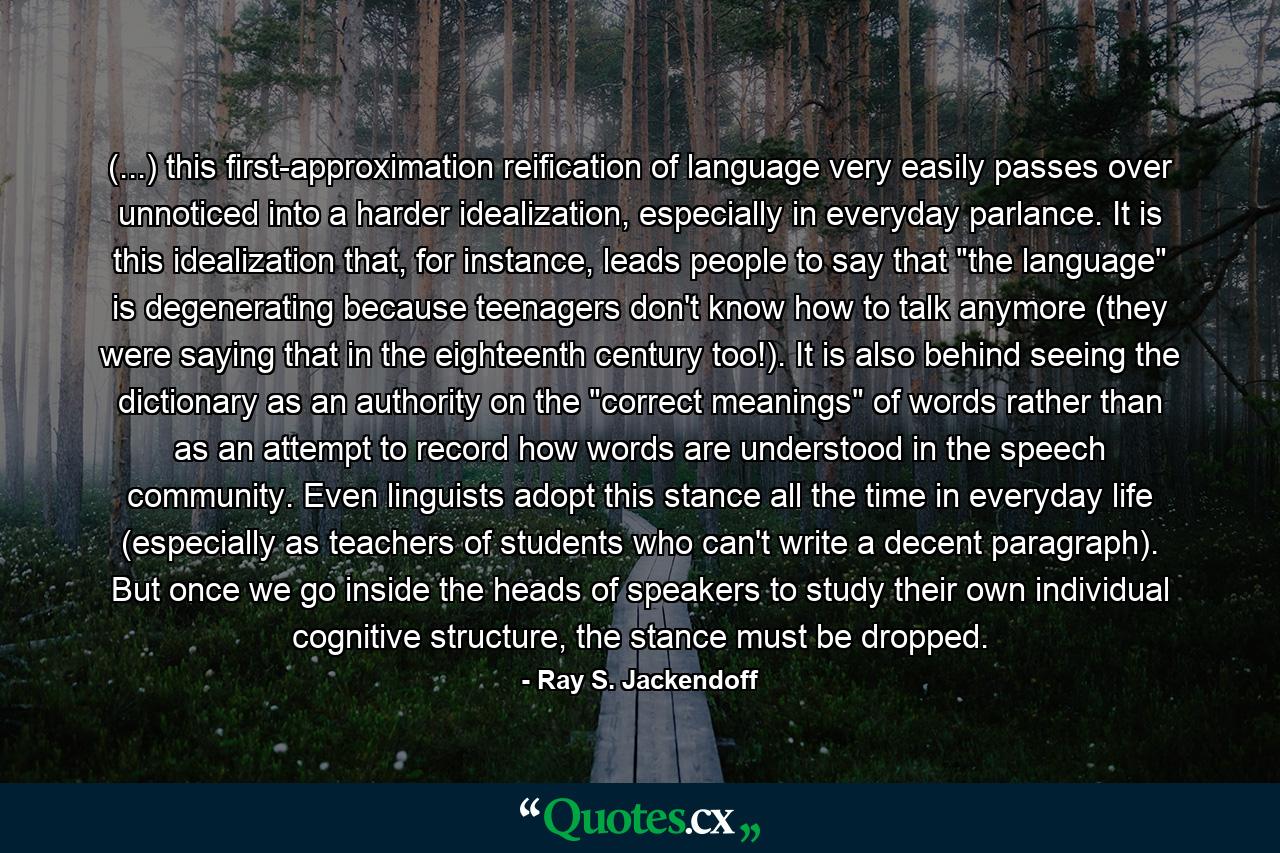(…) this first-approximation reification of language very easily passes over unnoticed into a harder idealization, especially in everyday parlance. It is this idealization that, for instance, leads people to say that “the language” is degenerating because teenagers don’t know how to talk anymore (they were saying that in the eighteenth century too!). It is also behind seeing the dictionary as an authority on the “correct meanings” of words rather than as an attempt to record how words are understood in the speech community. Even linguists adopt this stance all the time in everyday life (especially as teachers of students who can’t write a decent paragraph). But once we go inside the heads of speakers to study their own individual cognitive structure, the stance must be dropped.
